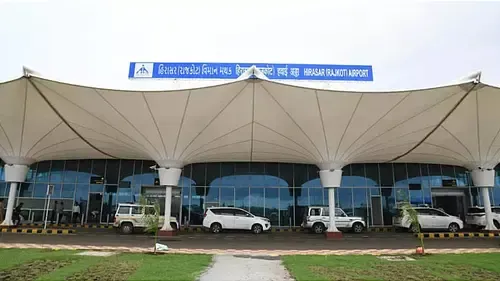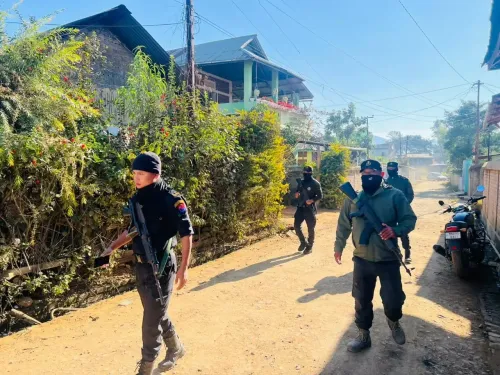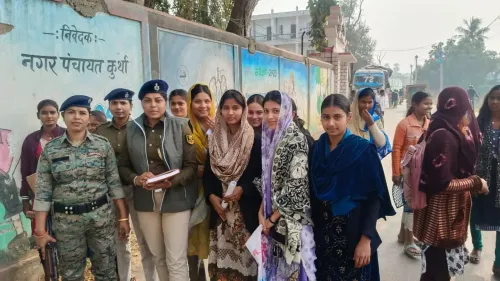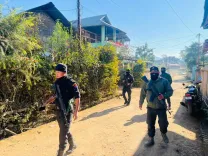Rajkot Airport Operates 24/7 Following Pahalgam Attack as Pakistan Closes Airspace

Synopsis
Key Takeaways
- Rajkot International Airport now operational 24/7 due to airspace closure.
- Pakistan suspends airspace for Indian flights, disrupting key routes.
- Emergency landing provisions authorized by the Indian government.
- Heightened security measures in Saurashtra and coastal districts.
- Coordinated efforts to secure Gujarat's maritime borders.
Rajkot, April 25 (NationPress) In the aftermath of the terror attack in Pahalgam, Jammu and Kashmir, on April 22 that resulted in 26 fatalities, tensions have surged between India and Pakistan, leading to immediate diplomatic and strategic measures from both nations.
In response, Pakistan has suspended its airspace for Indian flights, significantly disrupting crucial international routes, especially between Delhi and Dubai. Consequently, Rajkot International Airport has been designated as a key stopover point and will now operate 24 hours a day.
The Indian government has authorized round-the-clock operations to facilitate emergency landings, both technical and medical, ensuring minimal disruption for airlines that need to reroute due to the airspace closure. This decision came after private airlines approached the Centre for alternative landing options.
Given the potential delays at Delhi Airport and Air India, Rajkot’s enhanced operational status is anticipated to be vital in maintaining service continuity.
The Rajkot Collector confirmed this development, stating, “With Pakistan closing its airspace, several private airlines sought emergency landing provisions. Thus, Rajkot International Airport will function 24/7 to accommodate these needs.”
Meanwhile, in the wake of the Pahalgam attack, central and state security forces—including the Indian Army, Navy, Air Force, and Marine Commandos—have heightened their alert status.
In Saurashtra, security measures have been intensified not only in Jamnagar but also in adjacent coastal districts like Dwarka and Morbi. Fishermen’s boats are under strict inspection, and their movements are closely monitored to prevent any potential infiltration or illegal activities via the sea.
Alongside the Marine Police, teams from the Local Crime Branch (LCB), Special Operations Group (SOG), Marine Commandos, and Home Guards have been deployed to bolster security along the coastline.
Officials emphasize that these coordinated efforts are designed to ensure no vulnerabilities remain in securing Gujarat’s maritime boundaries, especially considering the heightened national threat perceptions.










